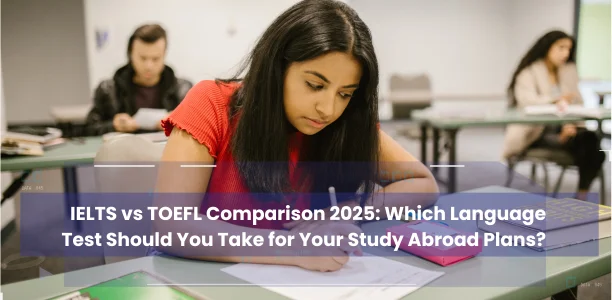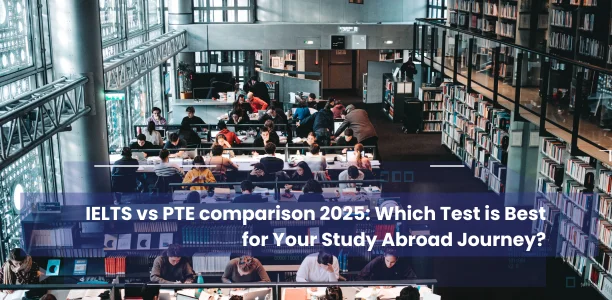
Differences between IELTS Academic and IELTS General Training
When it comes to English proficiency tests, IELTS (International English Language Testing System) is unique in offering two distinct versions: IELTS Academic and IELTS General Training. This flexibility allows test-takers to choose the version that best suits their needs. But what exactly sets these two tests apart? Let’s explore the key differences and help you decide which test aligns with your goals.
Choosing the Right IELTS Test
The primary difference between IELTS Academic and IELTS General Training lies in their intended purpose. Your choice should be guided by what you aim to achieve with your IELTS score:
- IELTS Academic: This version is designed for individuals seeking to pursue higher education or professional registration in an English-speaking environment. It assesses whether a candidate is ready to begin studying or training in an academic context.
- IELTS General Training: This test is suitable for those planning to migrate to English-speaking countries, such as Australia, Canada, New Zealand, or the UK. It focuses on basic survival skills in broad social and workplace contexts.
Before booking your test, it’s crucial to check the specific requirements of the institution or organization where you plan to use your test score. This ensures you choose the test that best fits your objectives.
Detailed Differences between IELTS Academic and IELTS General Training
IELTS General Training
The IELTS General Training test is designed for individuals who wish to live and work in an English-speaking country. It evaluates your ability to communicate effectively in everyday situations, making it suitable for those looking to gain work experience or undertake secondary education.
Key focus areas include:
- Practical Communication Skills: The test assesses how well you can use English in real-life situations, such as in social interactions and workplace communications.
- Adaptability: It measures your ability to understand and respond to various scenarios you might encounter in an English-speaking environment.
IELTS Academic
The IELTS Academic test is intended for students who want to pursue higher education abroad. It assesses your readiness to study in an academic environment where English is the medium of instruction.
Key focus areas include:
- Academic Language Proficiency: It evaluates your ability to understand complex academic texts and to express ideas clearly and effectively.
- Critical Thinking: The test assesses how well you can analyse and interpret information, which is crucial for academic success.
Comparing Test Content
Reading Section
The Reading sections of both tests consist of three sections, but the type of content differs:
- IELTS Academic: You’ll encounter three long passages sourced from books, academic journals, magazines, and newspapers. These passages are typically descriptive, factual, analytical, and discursive. You will answer 40 questions that test a range of reading skills, including reading for gist, reading for detail, skimming, understanding logical argument, and recognizing writers’ opinions, attitudes, and purpose.
- IELTS General Training: This version features texts that are relevant to everyday life, such as those found in advertisements, company handbooks, and official documents. The first section contains two or three short factual texts, the second section includes two short work-related texts, and the third section involves a longer text on a general topic.
Writing Section
Both versions require you to complete two tasks, but the nature and style of these tasks vary:
- IELTS Academic:
- Writing Task 1: You will be presented with a chart, graph, or diagram. You need to summarize, describe, or explain the information in your own words. This task tests your ability to interpret data and to communicate clearly and coherently.
- Writing Task 2: This task is an essay based on a point of view, argument, or problem. You will need to present and justify an opinion, compare and contrast evidence, and discuss implications. The style must be formal, and your essay should be well-structured with relevant examples.
- IELTS General Training:
- Writing Task 1: You will need to write a letter in response to a given situation. The letter could be personal, semi-formal, or formal in style. You might be asked to request information, explain a situation, or express your opinion.
- Writing Task 2: Like the Academic test, this involves writing an essay. However, the topics are of general interest. You need to respond to a point of view, argument, or problem, using a more informal style compared to the Academic test.
Making the Right Choice
Selecting the right IELTS test is crucial for your goals, whether they are academic or professional. Here are a few tips to help you decide:
- Consult Requirements: Always check the specific requirements of the institution or organization where you intend to submit your IELTS score. This ensures you choose the appropriate test.
- Understand Your Goals: Clearly define whether your aim is to study at a university or to migrate and work in an English-speaking country. Your goal will guide your choice.
- Prepare Accordingly: Once you’ve chosen the right test, focus your preparation on the specific content and skills assessed in that version. Tailored preparation can significantly enhance your performance.
How Reyna Overseas Can Help
For those preparing for IELTS, Reyna Overseas offers comprehensive support. Our resources include personalized study materials, mock tests, and expert guidance to help you excel. Additionally, you can download our app from the Play Store for convenient access to all our services.
Start your journey towards achieving your IELTS goals with Reyna Overseas today! For more information on how to prepare for IELTS, explore our resources or contact us directly. We’re here to help you every step of the way.




